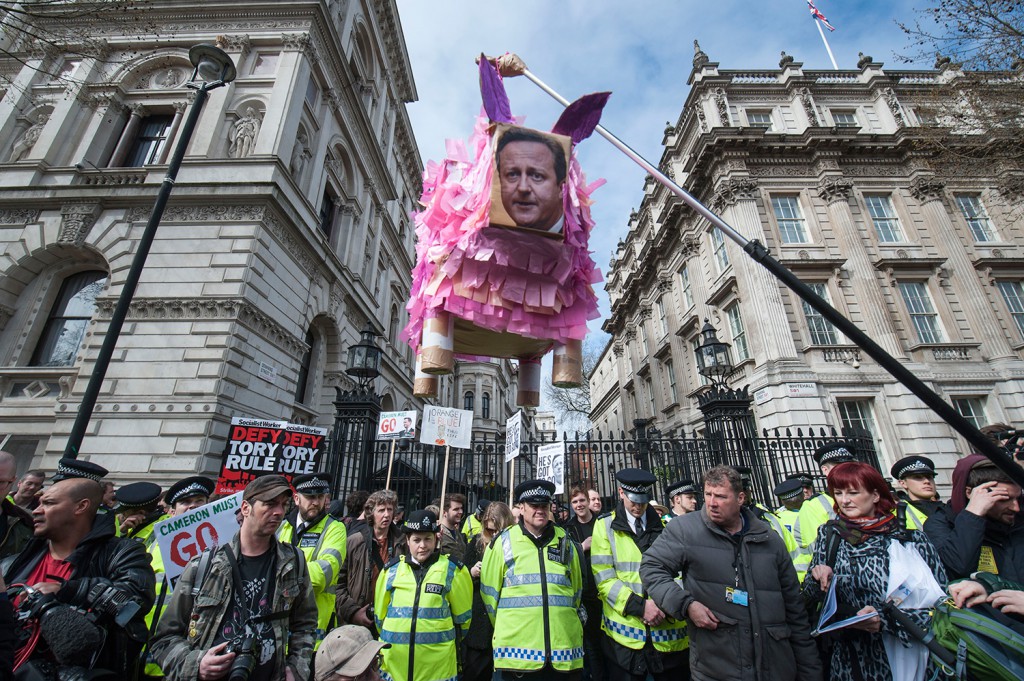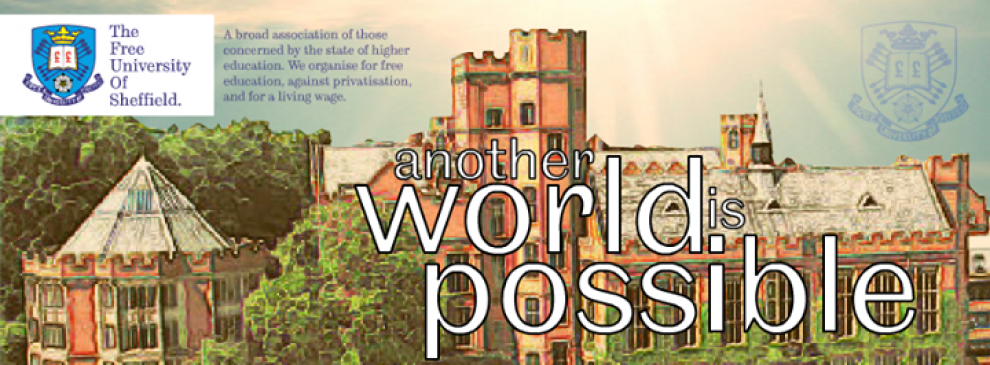The following is an opinion piece by Josh Berlyne; it is not an official statement of the Free University of Sheffield.

Just like the weather, the political climate in the UK is beginning to heat up (a little bit). There are still brief cold spells and rainy days, but the breeze of political sentiment—certainly amongst the young—is blowing leftwards.
What’s going on?
At the beginning of March we saw a big surge in actions. Many of these are still bubbling beneath the surface: the #DontDeportLuqman campaign is ongoing, although the occupation is over; students and staff at Birmingham are still resisting the cuts to the Modern Languages department; students at Brighton are still resisting the closure of their Hastings campus (sign the petition here); and UCL, Cut the Rent and Goldsmiths, Cut the Rent are still pushing forwards with their rent strikes.
At the University of Manchester, 43 workers are facing the sack. The University’s subsidiary company is cutting back its spending massively, and as a result 43 out of the 60 chefs in catered accommodation are facing redundancy, while the remaining 17 will get a pay cut. Free Education MCR, alongside the staff union Unison, are organising to resist: there will be a demo on Thursday 14th April at 12.30pm, University Place, Manchester. Furthermore, there is a big appetite for industrial action among the rank-and-file union members. Sign the petition here.
The #SaveBISSheffield demo on 9th April attracted hundreds of protestors. Jobs at the Department for Business, Innovation and Skills offices in Sheffield are set to be slashed as the government moves their offices to London—so much for the “Northern Powerhouse.”
Unite Young Members are launching their Fight for 5 – Decent Work For All campaign in Sheffield on 11th April at The Shakespeare.
The #CameronResign demo in London attracted thousands of demonstrators (at the same time, the demo to save the Carnegie library in south London attracted around 1,000). As Aaron Bastani pointed out, the average age of the demo was very young—Bastani reckoned it was the youngest protest he’d seen since the 2010/11 student protests. However romantic it is to think the reason for this is “youthful idealism”, it isn’t: our generation’s collective experience of neoliberalism is one of cutbacks, precarious work and rising living costs. This has made us cynical and angry, not idealistic.
The Junior Doctors have their next strike dates on 26th and 27th April. The National Union of Teachers have threatened to strike at the same time as the doctors, protesting the government’s plans to turn every school into an academy. Furthermore, the #BursaryOrBust campaign have been encouraging nursing students to walk out alongside the doctors, to protest the cuts to NHS student bursaries.
Finally, things are really heating up around Europe, with massive protests in Iceland, France and Greece. The ROAR Collective is predicting a “hot spring” in Europe this year.
What do we do?
Things are heating up, but we’re not about to see militant protests like the #LoiEmploi and #NuitDebout demonstrations in France. As Joana Ramiro points out, the left needs to be more organised if it’s going to have an impact. With that in mind, what do we need to be doing, as Free Uni activists?
Communicate. Arguably the most important task right now is to build strong links with other groups. The end goal is to create a strong alliance, or coalition, of groups opposing austerity, neoliberalism and (dare I say it) capitalism. Creating this requires an infrastructure with formalised lines of communication between these groups. It’s much more desirable to build a movement, rather than wait, hoping one will coalesce spontaneously.
The first step towards this is to build links with other student groups nationally, as well as building links with worker groups locally. This means taking every opportunity to go to the events, rallies and protests of other groups (and in other cities) and making an active effort to talk to the organisers and exchange contact details.
The next step would be to formalise those links: this would mean having “contacts” who attend other groups’ meetings and report back. This would allow us to…
Coordinate. With these lines of communication set up, we need to coordinate actions with other groups. This means demonstrations, occupations and more, carried out with multiple groups involved. It means when one group takes action, the others can be prepared to act in solidarity: releasing statements, publicising the action, helping out with arrestee support, fundraising, and more.
When the political climate really starts to heat up, it’s our role to organise, coordinate and sustain the wave of action.
